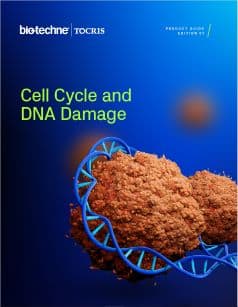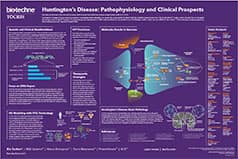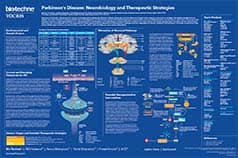Caspases
Caspases (cysteinyl aspartate proteases) are involved in the signaling pathways of apoptosis, necrosis and inflammation. These enzymes can be divided into initiators and effectors. The initiator isoforms are activated by, and interact with, upstream adaptor molecules.
Caspase Inhibitors |
|
|---|---|
| Cat. No. | 产品名称/活性 |
| 7242 | Ac-FLTD-CMK |
| Potent and selective inhibitor of caspases 1, 5 and 4 | |
| 8009 | Z-DEVD-FMK Caspase-3 Inhibitor |
| Caspase-3 Inhibitor | |
| 7310 | Emricasan |
| Potent pan-caspase inhibitor | |
| 6172 | INF 4E |
| Caspase-1 and NLRP3 inflammasome inhibitor | |
| 2163 | Z-VAD-FMK |
| Cell-permeable, irreversible caspase inhibitor | |
| 7143 | VX 765 |
| High affinity and selective caspase-4 and caspase 1/ICE inhibitor; orally bioavailable | |
Caspase Activators |
|
| Cat. No. | 产品名称/活性 |
| 2251 | Cisplatin |
| Potent pro-apoptotic anticancer agent; activates caspase-3 | |
| 2581 | PAC 1 |
| Activator of procaspase-3; pro-apoptotic | |
Other |
|
| Cat. No. | 产品名称/活性 |
| 2098 | Apoptosis Activator 2 |
| Promotes apoptosome formation and activates caspase-9/caspase-3 pathway. Selectively induces tumor cell apoptosis | |
Caspases (cysteinyl aspartate proteases) are involved in the signal transduction pathways of apoptosis, necrosis and inflammation. These enzymes can be divided into two major classes - initiators and effectors. The initiator isoforms (caspases-1,-4,-5,-8,-9,-10,-11,-12) are activated by, and interact with, upstream adaptor molecules through protein-protein interaction domains known as CARD and DED.
Effector caspases (-3,-6,-7) are responsible for cleaving downstream substrates and are sometimes referred to as the executioner caspases. More than 700 caspase substrates have so far been identified (see The Caspase Substrate Database).
Initiator caspases, such as caspase 8, may be directly activated by death receptors such as FasR. Caspases can also be found intracellularly as part of large multiprotein complexes. For example, caspase 9 is recruited to the apoptosome formed during apoptosis, whilst caspases-1 and 5 can form part of the inflammasome, a key part of cytokine processing during inflammation.
Caspases are regulated by inhibitors of apoptosis and by dominant negative isoforms. They have been implicated in the pathogenesis of many disorders including stroke, Alzheimer's disease, myocardial infarction, cancer, and inflammatory disease.
External sources of pharmacological information for Caspases :
Literature for Caspases
Tocris offers the following scientific literature for Caspases to showcase our products. We invite you to request* your copy today!
*Please note that Tocris will only send literature to established scientific business / institute addresses.
Cell Cycle and DNA Damage Research Product Guide
This product guide provides a review of the cell cycle and DNA damage research area and lists over 150 products, including research tools for:
- Cell Cycle and Mitosis
- DNA Damage Repair
- Targeted Protein Degradation
- Ubiquitin Proteasome Pathway
- Chemotherapy Targets
Cell Cycle & DNA Damage Repair Poster
In normal cells, each stage of the cell cycle is tightly regulated, however in cancer cells many genes and proteins that are involved in the regulation of the cell cycle are mutated or over expressed. This poster summarizes the stages of the cell cycle and DNA repair. It also highlights strategies for enhancing replicative stress in cancer cells to force mitotic catastrophe and cell death.
Huntington's Disease Poster
Huntington's disease (HD) is a severe monogenic neurodegenerative disorder, which is characterized by the prevalent loss of GABAergic medium spiny neurons (MSN) in the striatum. This poster summarizes the effects of mutant huntingtin aggregation implicated in the pathology of HD, as well as highlighting the use of iPSCs for HD modeling.
Parkinson's Disease Poster
Parkinson's disease (PD) causes chronic disability and is the second most common neurodegenerative condition. This poster outlines the neurobiology of the disease, as well as highlighting current therapeutic treatments for symptomatic PD, and emerging therapeutic strategies to delay PD onset and progression.
Programmed Cell Death Poster
There are two currently recognized forms of programmed cell death: apoptosis and necroptosis. This poster summarizes the signaling pathways involved in apoptosis, necroptosis and cell survival following death receptor activation, and highlights the influence of the molecular switch, cFLIP, on cell fate.
Caspase Gene Data
| Gene | Species | Gene Symbol | Gene Accession No. | Protein Accession No. |
|---|---|---|---|---|
| Cytokine Processing Caspases | ||||
| Caspase 1 | Human | CASP1 | NM_033292 | P29466 |
| Mouse | Casp1 | NM_009807 | P29452 | |
| Rat | Casp1 | NM_012762 | Q91W32 | |
| Caspase 4 | Human | CASP4 | NM_001225 | P49662 |
| Mouse | Casp4 | NM_007609 | P70343 | |
| Rat | Casp4 | NM_053736 | Q3MHS1 | |
| Caspase 5 | Human | CASP5 | NM_004347 | P51878 |
| Caspase 11 | Human | SFRS2IP | NM_004719 | Q99590 |
| Mouse | Sfrs2ip | NM_028148 | NP_082424 | |
| Rat | Sfrs2ip | XM_231361 | XP_231361 | |
| Caspase 12 | Human | CASP12 | NR_000035 | Q6UXS9 |
| Mouse | Casp12 | NM_009808 | O08736 | |
| Rat | Casp12 | NM_130422 | Q920D5 | |
| Caspase 14 | Human | CASP14 | NM_012114 | P31944 |
| Mouse | Casp14 | NM_009809 | O89094 | |
| Rat | Casp14 | XM_234878 | XP_234878 | |
| Apoptosis-Related Caspases | ||||
| Caspase 2 | Human | CASP2 | NM_032982 | P42575 |
| Mouse | Casp2 | NM_007610 | P29594 | |
| Rat | Casp2 | NM_022522 | P55215 | |
| Caspase 3 | Human | CASP3 | NM_004346 | P42574 |
| Mouse | Casp3 | NM_009810 | P70677 | |
| Rat | Casp3 | NM_012922 | P55213 | |
| Caspase 6 | Human | CASP6 | NM_001226 | P55212 |
| Mouse | Casp6 | NM_009811 | O08738 | |
| Rat | Casp6 | NM_031775 | Q6AZ23 | |
| Caspase 7 | Human | CASP7 | NM_033338 | P55210 |
| Mouse | Casp7 | NM_007611 | P97864 | |
| Rat | Casp7 | NM_022260 | O88550 | |
| Caspase 8 | Human | CASP8 | NM_001228 | Q96T22 |
| Mouse | Casp8 | NM_009812 | O89110 | |
| Rat | Casp8 | NM_022277 | Q9JHX4 | |
| Caspase 9 | Human | CASP9 | NM_032996 | P55211 |
| Mouse | Casp9 | NM_015733 | NP_056548 | |
| Rat | Casp9 | NM_031632 | Q9JHK1 | |
| Caspase 10 | Human | CASP10 | NM_032977 | Q92851 |




